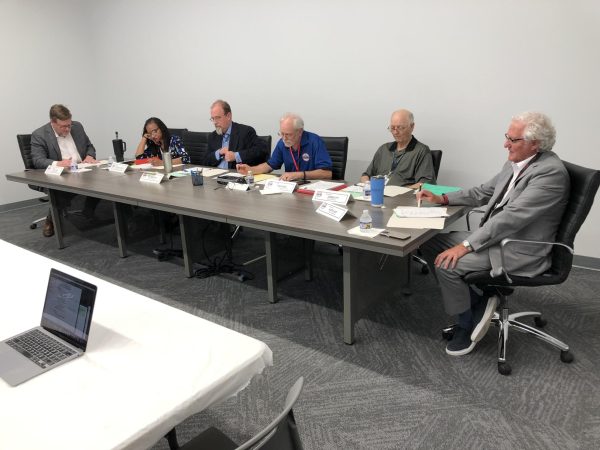Hospital authority plans to ask Macon-Bibb for a cut of its tax revenue
An ambulance is pictured outside the Medical Center, Navicent Health, (then The Medical Center of Central Georgia) in this 2009 file photo. Federal law requires all Medicare-participating hospitals with emergency departments to medically screen and stabilize any patient in need of emergency care.
The Macon-Bibb County Hospital Authority is planning to hold its hat out to Macon-Bibb in hopes the County Commission will agree to share a portion of the tax money it collects to help pay Atrium Health Navicent for indigent care.
The authority discussed its plans to approach the county at its regular virtual meeting Thursday.
“We don’t have the authority to tax but the county does have the authority to tax for purposes of the delivery of health care services for the residents of our county,” said Michele P. Madison, an Atlanta lawyer the hospital board hired as its outside legal counsel in 2017.
Indigent care means care provided to patients who cannot afford it, are underinsured or do not qualify for Medicaid.
Hospital authorities in Georgia were created by a state law that gives them powers that include buying and selling land, exercising eminent domain, executing contracts for hospital management, borrowing money and more.
Georgia Hospital Authority law also includes a provision that allows counties to make intergovernmental agreements with hospital authorities to tax residents up to 7 mills, “for the purposes of construction modernization, repair, ensuring facilities and ensuring access to health care services for the indigent and sick in our communities,” Madison said.
Madison shared the example of Grady Memorial Hospital and how DeKalb funneled $22 million from its taxes to the hospital and Fulton County dedicates a millage rate plus extra funding for the hospital too.
“So you’ll see some very big dollars, and then you’ll just see some millage rates that help maintain the hospital authorities throughout the state. And the way that works is under the Hospital Authority laws, the county is authorized to issue
For decades, the county paid the authority a fluctuating annual sum to offset some of the hospital’s costs of indigent care. However, the county cut off funding completely in 2018 amid a financial crunch of its own.
It was unclear what prompted the authority’s discussion about reaping tax dollars from the county.
Ken Banks, lawyer for Atrium Health Navicent and secretary of the hospital authority board since 1994, mentioned the historical precedent around getting tax dollars from the county.
“We sort of have a moral argument to make, it seems to us that, you know, we were providing services to the county, the county is authorized to support us in terms of financial support for the indigent care for services and other services we provide to the community,” Banks said.
Last year, the hospital reported it provided nearly $80 million in net uncompensated care last year, according to its 2021 financial disclosure. Its gross inpatient revenue totaled nearly $2 billion and expenses were almost $658 million.
The county isn’t the only tax-collecting body from which the hospital could recoup some of its spending on indigent care. The state created The Indigent Care Trust Fund in 1990 as a means to help offset the cost for hospitals that provide a disproportionate amount of indigent care. Atrium Health Navicent is a participant and collected a total of more than $9 million from the fund in 2018 and 2019, according to the most recent data, an interim Disproportionate Share Hospital Payment report from the Georgia Department of Community Health published online earlier this month.
The hospital authority’s property is not on the county’s tax rolls, which saves the hospital millions in property tax dollars each year.
To contact Civic Journalism Fellow Laura Corley, call 478-301-5777 or email [email protected].



















